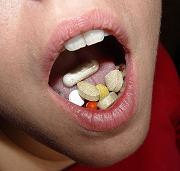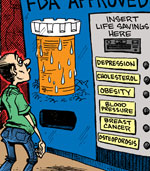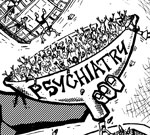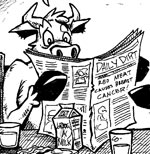Getting Enough Vitamin B6 Without Taking Too Much
| Share on Facebook | Share on Twitter | Share on Google+ |
How much vitamin B6 should I take?
It's a common question, and the answers depend on whether you are just wanting a minimum of "vitamin insurance" or whether you are facing special circumstances that have caused you to experience a vitamin B6 deficiency. But first a word about the maximum dosage of vitamin B6:

And the reason you would ever take that much vitamin B6 would be that you suffered sideroblastic anemia and you needed a variety of B vitamins because of bone marrow problems. If you really need that much vitamin B6, you also need a doctor's supervision for your disease. And if you had certain kinds of mushroom poisoning, you might get a single dose of up 10,000 mg of B6 under doctor's supervision.
Dosages of 1,000 mg of vitamin B6 a day have been associated with numbness and breathing problems, but no one needs to take that much. If for some reason you do need to take high-dose B6, then it's important to remember:
But the real problem is an imbalance in the amino acids for which vitamin B6 is an enzyme cofactor, not the B6 itself.
Most of the time a much lower dosage of B6 will correct a deficiency. Here are some typical dosages of the pyridoxine form of B6 used in various diseases:
- 50 to 600 mg a day for sideroblastic anemia
- 100 to 500 mg a day, with other B vitamins, for people with high homocysteine
- 100 to 250 mg a day for luteal phase defect in women trying to conceive(read more about vitamin B6 and pregnancy)
- 50 mg a day for people with chronic liver disease
- 2 to 5 mg a day for people receiving dialysis or who have chronic kidney disease
Just avoiding vitamin B6 deficiency symptoms only requires 1 to 2 mg a day, more for people over 70 and lactating mothers, less for teens and adults under 50. Children under six usually need no more than 0.5 mg a day and infants who are fed formula (not breastfed) may only need 0.1 or 0. 2 mg of B6 a day(you may also be interested in vitamin b6 for children ). But any dosage under 10 mg a day is certain not to cause any side effects.
-
Skin CareMen Skin Care
-
Free ResourcesFree eBooks
-
The important thing is this: to be able, at any moment, to sacrifice what we are for what we could become.Maharishi Mahesh Yogi
-
Featured Health SupplementAll ingredients are assessed at molecular level to ensure synergy, safety and effectiveness.
 This is crucial because when some ingredients are combined they will help create other substances in the body.
This is crucial because when some ingredients are combined they will help create other substances in the body.
-



















